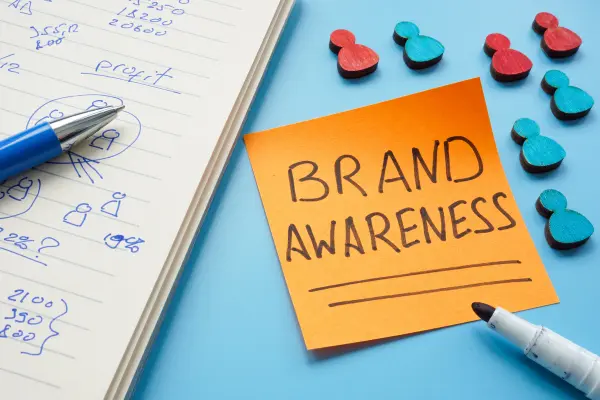The Role of Social Media in Healthcare Marketing: Trends and Insights
Introduction
Technology and consumer behavior are changing healthcare. Social media is among the main engines of this change. This blog article investigates the important part social media plays in healthcare marketing, stressing present trends and offering insightful analysis for clinics wishing to use social media for more involvement and expansion as well as for their employees.
The Rise of Social Media Marketing for Healthcare
Why Social Media Marketing for Healthcare Clinics?
Healthcare marketers need social media’s wide reach and diversified audience. Using these tools, healthcare practitioners may quickly and effectively share crucial information. Patients extensively utilize social media for health information, reviews, and clinic connections. Social media allows consumers follow healthcare advances, join online networks, and get help from those with health issues. This shows how important social media is for healthcare businesses seeking to create trust, engage patients, and improve communication.
Key Platforms in Social Media Marketing for Healthcare Clinics
Different social media platforms provide healthcare marketing. Facebook, Instagram, Twitter, LinkedIn, and YouTube attract patients and professionals. Health practitioners can post health tips, patient testimonials, and educational videos on numerous networks. These initiatives build credibility and audience participation, enabling quick responses to inquiries and concerns. These platforms provide targeted advertising, making marketing more effective.
The Importance of a Strong Social Media Presence
Strong organization’s social media presence boosts healthcare provider reputation. Publishing about medical advances, health suggestions, and success stories can help healthcare professionals learn. It promotes openness, community, and education. Building trust, engagement, and loyalty between doctors and patients may benefit both.
Current Trends in Social Media Marketing for Healthcare Professionals
Trend 1: Personalized Patient Engagement
Personalization in social media marketing for healthcare is crucial. Tailored content that addresses individual patient needs and concerns fosters a stronger connection and encourages active engagement.

Trend 2: Video Content Dominance
Video content for social media marketing for healthcare clinics including live streaming, educational videos, and patient testimonies is rising. These more personal and entertaining videos may help doctors explain complex medical concepts. Real-life patient testimonials might help reassure future patients. Healthcare providers may use video to educate and communicate with patients.
Trend 3: Influencer Collaborations
Health influencer collaborations can boost healthcare marketing reach. Influencers with huge, loyal followings may give relevant testimonies and endorsements for their target market. Influencers may boost healthcare company engagement and reputation by sharing personal experiences and credible opinions. This method builds brand recognition and relationships with future patients and consumers.
Trend 4: Use of AI and Chatbots
Chatbots and AI are transforming social media marketing for healthcare professionals. These revolutionary technologies allow patients to receive answers immediately without waiting for a human. They make appointments easily, reducing wait times. Chatbots may also tailor health suggestions to patient data and preferences. This promotes patient satisfaction and healthcare efficiency and responsiveness.
Trend 5: Focus on Community Building
Building online communities around specific health topics or conditions helps create a supportive environment for patients. These communities foster engagement, provide valuable peer support, and enhance patient loyalty.
Trend 6: Social Media Advertising
Paid social media advertising (Meta Ads) is essential for reaching a larger audience. Targeted ads can promote services, share health tips, and announce special events, driving traffic to healthcare websites and clinics.
Benefits of Social Media Marketing for Healthcare Professionals
Building Professional Networks
LinkedIn connects healthcare professionals, shares knowledge, and tracks industry trends. These networks allow healthcare professionals to exchange best practices, uncover new solutions, and debate industry achievements. These ties can promote professional growth and patient care through research partnerships and cross-disciplinary efforts.

Enhancing Patient Communication
Social media marketing for healthcare links doctors and patients like never before. Doctors can promptly resolve Facebook, Twitter, and Instagram concerns, boosting patient satisfaction. Immediacy lets patients voice concerns and get help quickly. Experience the power of fast linkages that effortlessly foster patient involvement and seamlessly facilitate the transfer of health information. With our cutting-edge technology, accessing wellness details has never been easier. Stay informed and take control of your health journey. Experience a new level of connection and information, empowering patients to truly enhance their healthcare journey. Discover the transformative power of sharing knowledge, medical advancements, and cutting-edge preventative care strategies. By empowering patients to take an active role in their health, we can unlock a world of possibilities for a healthier future.
Promoting Health Education
Social media marketing for healthcare professionals helps inform the public about health issues, prevention, and treatment. The latest stats can shed light on various health issues, bring attention to both common and uncommon concerns, and encourage a healthy lifestyle. Watching videos, reading articles, and checking out infographics can help you make better health decisions and stay on top of your well-being. Having open communication is key to building trust between providers and the community, which ultimately leads to better health outcomes.
Increasing Patient Referrals
Satisfied patients frequently share their great experiences on social media, resulting in more recommendations. Encouraging patients to submit reviews and share their stories can help attract new patients.
Benefits of Social Media Marketing for Healthcare Clinics
Brand Awareness and Visibility
Clinics build brand awareness on social media. Clinics may attract new patients by updating regularly, adding patient testimonials, and entertaining material. Social media participation and pertinent information help clinics reach more people, engage the community, and create trust. We develop relationships with new and existing patients, improving the clinic’s reputation.

Patient Retention
Engaging with patients on social media marketing for healthcare clinics helps maintain a strong relationship, improving patient retention. Clinics can share updates, health tips, and reminders, keeping patients engaged and informed.
Market Research
Social media platforms provide valuable insights into patient preferences and behaviors. Clinics can use this data to tailor their services and marketing strategies to meet patient needs better.
Crisis Management
Social media is a great crisis communication tool. Clinics can promptly announce hours, safety standards, and services. It lets them quickly reassure and enlighten patients.
Implementing Effective Social Media Strategies in Healthcare
Developing a Social Media Plan
Healthcare marketing requires strong social media strategies. This approach should aim to increase patient engagement or healthcare website traffic. Include age, geography, and interests of target audience. Genres, publishing schedule, and platforms must be part of the content strategy. Finally, create KPIs to measure and adjust progress.
Content Creation and Curation
Successful marketing requires relevant content production and curation. Information, interest, and audience relevance are key. Value is maintained by understanding preferences, issues, and goals. Regular publishing engages readers. Diversifying content with blogs, videos, and social media increases reach. Performance measurements and feedback improve content planning.

Leveraging Analytics
Social media statistics show marketing success. Marketers may assess content performance using engagement, reach, and conversion rates. It helps refine and concentrate campaigns by examining which tactics work and which need improvement. Regular analysis of these analytics can reveal trends and patterns, enabling organizations stay ahead of the competition and optimize social media.
Encouraging Patient Reviews
Healthcare providers gain reputation and new patients by promoting patient reviews and social media posts. Positive reviews indicate potential patients the kind of service they may expect. This fosters camaraderie and trust among current and prospective patients. Promoting and reacting to patient feedback may boost patient satisfaction and progress.
Ensuring Compliance and Privacy
Healthcare providers must follow HIPAA on social media. This includes being careful about what and how you disclose information. In all online contacts, patient privacy must be protected to comply with legal requirements and retain patient-provider confidence. Providers should address the dangers and create strict procedures to protect sensitive data across all digital channels.
Challenges in Social Media Marketing for Healthcare
Navigating Regulations
Healthcare providers must navigate complex regulations regarding patient privacy and advertising. Staying informed and compliant is crucial to avoid legal issues.
Managing Negative Feedback
Negative feedback is inevitable. Handling it professionally and addressing concerns promptly helps maintain a positive online reputation.
Keeping Up with Trends
Social media trends change quickly. Online success requires staying current and changing techniques. This requires monitoring platform upgrades, adopting new technologies, and knowing audience preferences. You can keep your content relevant and effective in a changing digital world by doing so.
Resource Allocation
Effective social media marketing for healthcare professionals costs time and money. Healthcare providers require adequate resources to monitor and post engaging social media content. This entails planning content, scheduling posts, responding patient inquiries, and analyzing performance metrics to enhance their approach. These investments can help healthcare providers build online trust and engagement.

Future Trends in Social Media Marketing for Healthcare
Increased Use of Augmented Reality (AR)
AR is expected to play a significant role in healthcare marketing. Virtual tours of clinics, interactive health education, and AR-enhanced consultations can enhance patient engagement.
Growth of Telehealth
Telehealth needs sophisticated social media. As internet use grows, social media telehealth services may attract consumers seeking easy and accessible healthcare. Telehealth’s flexible scheduling, home-based consultations, and decreased wait times may be promoted on social media. Healthcare providers may fulfill telehealth demand with targeted marketing, appealing content, and patient testimonials.
Focus on Mental Health
Social media is emphasizing mental wellness. This focus affords healthcare providers a wonderful chance to promote mental health therapies on these platforms. They may promote mental health, educate the public, and develop a supportive online community by connecting with individuals and providing crucial information. Mental health awareness and access to care depend on social media.

Expansion of Influencer Marketing
Influencer marketing will increase as companies realize social media personalities affect customers. Partnering with health influencers may enhance reach and reputation, especially among younger audiences that seek wellness and lifestyle advice. These influencers’ trust and involvement may help brands connect with target audiences more honestly.
Integration of Social Commerce
Social commerce allows patients to book appointments and purchase health products directly through social media platforms. This integration streamlines the patient experience and boosts conversions.
Conclusion
Healthcare professionals and clinics need social media marketing. Physicians may improve patient involvement, trust, and practice growth by knowing current trends and applying successful tactics. The ideas and trends in this blog article outline how to use social media for healthcare marketing.
Webugol helps professionals understand social media marketing for healthcare. Our experts customize methods to help your office stand out online, interact with patients, and achieve quantifiable outcomes. Partner with Webugol to improve healthcare marketing and reach your goals.


